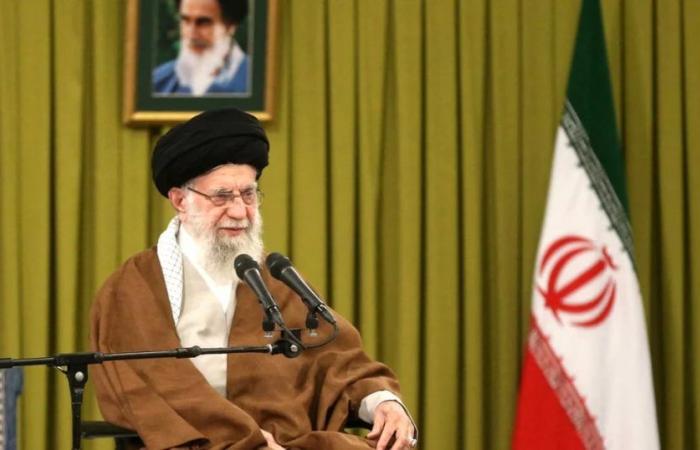
The Iranian regime warned Israel on Saturday that “All members of the axis of resistance”, which includes Tehran and its regional allies, could be mobilized if it launches a large-scale offensive against the terrorist group. Hezbollah in Lebanon.
The Iranian mission to the UN in New York said the Islamic Republic sees a strategy of “psychological warfare” in the “propaganda of the Zionist regime concerning its intention to attack Lebanon”.
“If (Israel) launches into large-scale military aggression, a devastating war will ensue.“added the Iranian diplomatic mission.
“All options, including the full involvement of all members of the axis of resistance, are on the table,” he warned.
The so-called axis of resistance includes actors sympathetic to Iran in the Middle East: the Syrian regime, the Lebanese Hezbollah movement, the Palestinian Hamas, the Houthi rebels of Yemen and the Shiite militias of Iraq.
The day after Hamas launched a surprise attack against Israel on October 7, Hezbollah opened a second front in northern Israel in solidarity with the Palestinian Islamist movement.
Since then there has been a continuous exchange of fire on the Israeli-Lebanese border, forcing the evacuation of tens of thousands of people on both sides and threatening to degenerate into an all-out conflagration.
In the same way, In recent months, Houthi rebels have attacked numerous merchant ships in the Red Sea linked according to them to Israeli interests. The United States in particular and also the United Kingdom launched operations in Yemen in response to these attacks.
This Wednesday, the Israeli Minister of Defense Yoav Gallant He stated that he does not want an all-out war with Hezbollah in Lebanon, although his country has the ability to return its neighbor to the “stone age,” he warned.
Previously, Hezbollah leader Hasan Nasrallahsaid “nowhere” of Israel would be safe from its missiles in the event of a conflagration.
The United States, the UN and France have also warned against an all-out war between Israel and Hezbollah.
The reformer Masoud Pezeshkian and the ultraconservative Saeed Jalili will compete for the Iranian presidency in a second round of elections after neither candidate managed to secure 50% of the votes in the first round, the country’s Electoral Commission reported on Saturday.
These presidential elections recorded the lowest turnout in the history of the Islamic Republic of Iranwith only 40% of voters who went to the polls, a fact that shows the citizen discontent due to the economic situation and the lack of freedoms.
“None of the candidates has obtained an absolute majority of the votes“said the spokesperson for the Electoral Commission, Mohsen Eslamiin a televised press conference.
“A second round will be held as established by law, which will be on July 5“, added Eslami, who announced that 24,535,185 people voted, representing 40% of the electorate.
In the elections The reformist Pezeshkian has won with 10,415,991 votes, representing 42.4% of the totalclosely followed by Jalili with 9,473,298 votes or 38.6%.
The pragmatic conservative who was the favourite when the election campaign began is now a long way off. Mohammad Baqer Qalibafwith 3,383,340 votes, 13.79%, and beyond that the fourth candidate is the cleric Mostafa Pourmohammadi with 206,397 ballots, 0.8%.
Elections are held to choose the president’s successor. Ebrahim Raisiwho died in a helicopter crash in May, along with seven other people.
The Iranian president has decision-making power in domestic matters and to a lesser extent in foreign and security policy in Iran, where Ali Khamenei He acts as head of state with vast powers.
(With information from AFP and EFE)

